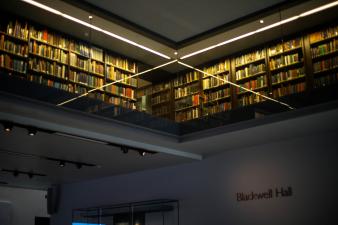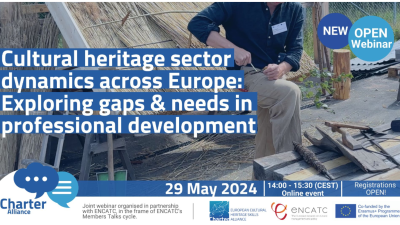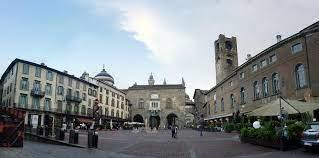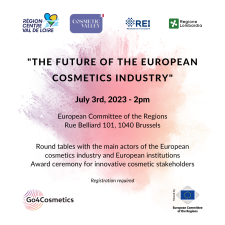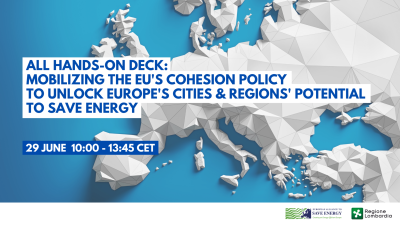
Lombardy Region, situated in the North-West of Italy, is strategically located on principal European axes and is one of the leading regions both at the national and European level. Lombardy has a population of around 10 million inhabitants and a very competitive economic performance, with a GDP (PPS/inhabitant) which amounted to €39,700 in 2019 and an employment rate (20-64 years) of 73,4%. The regional economy is characterised by a wide variety of industries, ranging from traditional sectors to heavy and light industries. The production system is one of the most developed in Italy and Europe, with a strong presence of SMEs, except for a few very large firms. Entrepreneurship in Lombardy is thus widespread and dynamic, showing an international trend towards innovation, development, and technology. Lombardy also leads the way with a solid academic system of 14 high-quality universities as well as several public and private research centres with outstanding competence and international relevance. In such a context, the engagement of Lombardy in supporting R&D investments is intense and highly relevant. Innovation is indeed a distinguishing element of the region’s activities, being a driving force to ensure a competitive and modern socio-economic development.
Contact detail
-
Head of office
-
Contact person
-
Brussels Office Address
Place du Champ De Mars, 1/3
1050 Brussels
Belgium -
Regional Address
Piazza Città di Lombardia 1
20124 Milano MI
Italy

S3 Strategy
The Smart Specialisation Strategy 2021‐27 confirms its “integrated trajectory” to foster regional development in the framework of the new EU Cohesion Policy, with the final objective of delivering a more targeted ERDF support and harnessing the potential for smart growth in the Lombardy region, focusing on key R&I priorities and building upon regional competitive strengths. Being also deeply influenced by the recovery orientations as emerged after the Covid-19 crisis, the new RIS3 outlines key strategic assets, resources, and priorities to lead future regional investments in R&I as well as in favour of industrial modernisation and technology transfer. In such a framework, the promotion of digital transition and sustainable development, along with the strengthening of regional resilience and its capacity to adapt to rapid socio-economic changes, represent the two main trajectories of action. The regional approach focuses on the identification of the main challenges to face in the coming years by concretely addressing eight innovation ecosystems, firmly keeping the citizens and their needs at the core. The resources will be concentrated on strategic projects supporting innovation processes in traditional sectors and the development of technological clusters so to help businesses to find strategic opportunities and provide new solutions for citizens.
Strategic R&I Projects
Latest Tweets
Latest Tweets
Latest Updates
- By Astrid Hannes
Strengthening skills governance in regional innovation ecosystems: lessons learnt and remaining challenges
The forthcoming SEFS Working Group meeting will be dedicated to strengthening skills governance in regional innovation ecosystems. The members will learn about CHARTER's results, the first Erasmus+ funded sectoral blueprint that involved six regions to explore the place-based perspective on skills governance from a regional innovation ecosystem’s perspective. The event will take place online on 14 June at 10:00.
- By Astrid Hannes
CHARTER Webinar: Cultural Heritage Sector Dynamics across Europe: exploring gaps and needs in professional development
The CHARTER EU Skills Alliance for Cultural Heritage, one of ERRIN's projects, is organising a webinar on 29 May to present the project's findings on the sector's integrated dynamics and examine relevant stakeholders in the heritage sector. It will also allow participants to get insights into the process of mapping the cultural heritage sector in terms of skills and needs shortages in educational and professional contexts. The speakers will also present future scenarios and solutions.
- By Leonardo Lorusso
Research and Innovation for Sustainable Growth: The Case of Bergamo and Brescia Ecosystems
Regione Lombardia EU Delegation is hosting the event "Research and Innovation for Sustainable Growth: The Case of Bergamo and Brescia Ecosystems" on 31 January. The conference will present the joint research and innovation strategies of Bergamo and Brescia Universities, focusing on sustainable manufacturing ecosystems and the valorisation of territorial and cultural assets.
- By Celeste Rouberol
Conference on The Future of the European Cosmetics Industry
The Centre Val de Loire and Lombardy regions are pleased to invite you to the Conference on “The Future of the European Cosmetics Industry” to be held on 3 July 2023 at the European Committee of the Regions in Brussels from 14:00-17:30.
- By Leonardo Lorusso
All Hands On Deck: Mobilising the EU's Cohesion Policy to unlock Europe's Cities & Regions' potential to save energy
The Regione Lombardia and the European Alliance to Save Energy are organising an event on 29 June aiming to build forward-looking partnerships between regions & businesses on energy efficiency.
- By Francesca Pozzebon
CH&T and D&C joint WG event on Culture Moves Europe: Supporting cultural mobility in Europe and beyond
The Cultural Heritage and Tourism and the Design and Creativity Working Groups are organising a meeting with the participation of the Goethe Institut on Culture Moves Europe on 10 May. Culture Moves Europe provides mobility grants for artists and cultural professionals in all 40 creative Europe countries.
